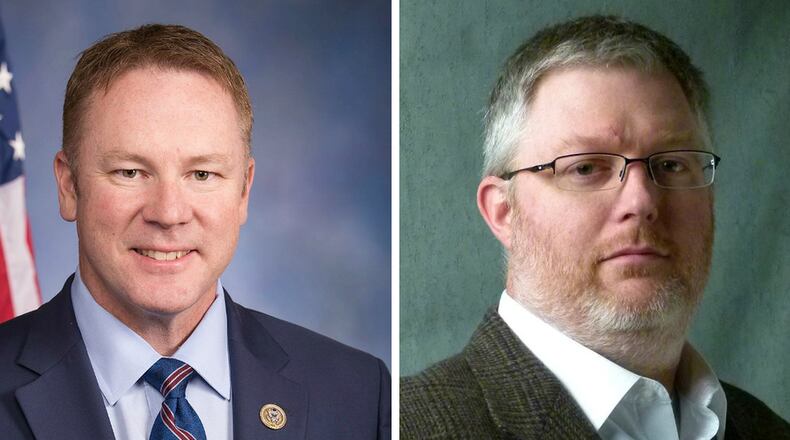Congressman Warren Davidson, R-Troy, has shown to have deep campaign coffers and strong political allies. West Chester Twp. resident Edward Meer, who ran against Davidson and more than a dozen other GOP candidates in 2016, is again asking voters to pick him to represent the 731,000-resident district.
Ohio’s 8th Congressional District includes all of Butler, Clark, Darke, Miami and Preble counties, and the southernmost portion of Mercer County. The district was represented by former House speaker John Boehner for 25 years before resigning in October 2015. The district is one of the most conservative in Ohio, and more than half of its population resides in Butler County.
ELECTION 2020: Pair of Democrats eyeing Ohio’s 8th Congressional District seat
Davidson has raised more than $450,700 in campaign cash this election cycle, and spent more than half on his campaign, according to his Federal Election Commission filings. Meer hasn’t raised any campaign cash, according to the FEC.
Meer, who admits he’s a longshot to beat Davidson, is making this race about the differences between himself, a moderate Republican, and the Freedom Caucus conservative.
“I try to be pretty open-minded about everything,” said Meer about not making decisions until he’s informed about an issue or position.
Meer, who would focus on the country's deficit, protecting 2nd Amendment rights and helping farmers with improved trade deals, accuses Davidson of lying to constituents on Facebook and in interviews, saying Democrats "were breaking the rules of impeachment" when the House considered articles against President Donald Trump.
Davidson disputes any accusation of lying. In December, Davidson on the House floor called the impeachment hearing "a disgraceful, dishonest process." He later said in press statements before and after the impeachment vote was "a predetermined outcome" and he did not "see clear and convincing proof."
Meer said he would work with the House Democrats, since he expects the opposing party to keep its majority, by “marketing ideas in a way that Democrats will want them.”
“Everything I have planned to do is set to marketing to get Democrat’s to bite and pass conservative laws,” Meer said. “It’s not easy, but it has to be done this way.”
ELECTION NEWS: Butler, Warren election offices combating coronavirus concerns
Davidson said working with the Democrats is about being “focused on solving problems and changing laws. I find common ground with diverse coalitions.”
Examples include the SAFE Banking Act and Safeguarding Americans Private Records Act, a pair of Democrat-introduced bills where Davidson was one of several Republicans to sign on as an original co-sponsor. The SAFER Banking Act passed the U.S. House in September.
He also received support from several Democrats on a pair of bills he introduced, the Token Taxonomy Act and the People CARE Act. These bills remain in House committees.
Davidson said working on the SAFE Banking Act is a prime example of him working with others who held the opposite beliefs. The act would prevent federal banking regulators from penalizing banks for working with cannabis-related businesses that follow state laws.
The winner of this GOP congressional district race will face the winner of the Democratic Party primary, featuring Vanessa Enoch, the party’s 2018 nominee from West Chester Twp., and Matthew Guyette, the party’s 2014 nominee from Greenville.
About the Author

